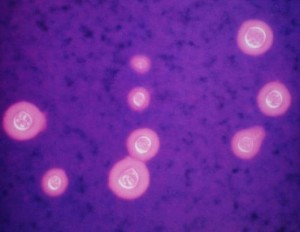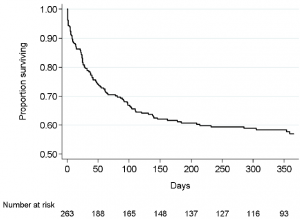Using existing data from 501 patients in clinical trials in Thailand, Uganda, Malawi and South Africa, Joe Jarvis and colleagues from St George’s Hospital in London discovered some key parameters of survival in cryptococcal meningitis in AIDS. One third of the patients had died by 10 weeks. Younger age, being fully alert, less weight loss before presentation to hospital and initial amphotericin B treatment were 3 important characteristics of those who survived. High CSF fungal load, higher blood white cell count and anaemia predicted death. At one year 60% of patients were still alive. One in 8 (13%) developed immune reconstitution syndrome which was more frequent if the brain fungal load was higher and interestingly had no relationship with when antiretroviral therapy was started. Low cerebrospinal fluid gamma interferon doubled the risk of dying from 9% to 19%.

Professor Harrison, the senior author on the paper published in the prestigious journal Clinical Infectious Diseases said: “The results suggest earlier diagnosis, more rapidly fungicidal amphotericin-based regimens, and prompt immune reconstitution with ART are priorities for improving outcomes.”
